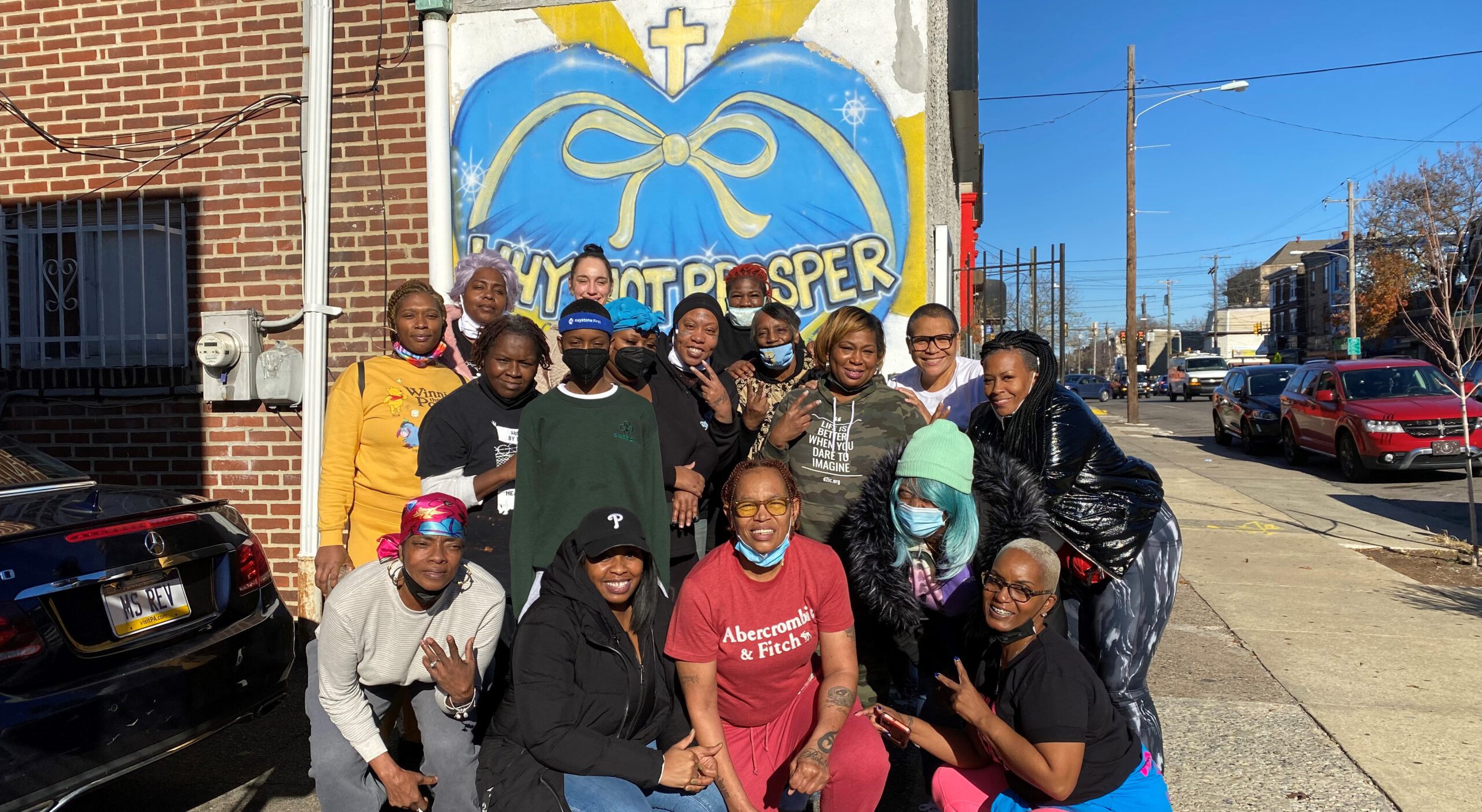Reverend Michelle Simmons – “Rev. Michelle” to all who know her – knows what women want to do when they return from prison. She knows because she’s been through what they’ve been through.
“I know firsthand what it’s like to go through the wringer and get home from prison and not know where you’re going to go, not know where you’re going to sleep, not know where you’re going to eat,” says Rev. Michelle. “The cornerstone of this house was born from my experiences.”
While in a prison in Philadelphia, Rev. Michelle worked to overcome a drug addiction. By the time she returned, she had been in recovery for eight months. And one night on this road to recovery, everything changed.
“The Lord told me to open up a house for women coming from prison,” Rev. Michelle says. “It was a mandate and a command.”
She responded to this call – immediately. She founded an organization to support returning women, and named it Why Not Prosper – a challenge to those who question the capabilities of women like her. And she started with housing first.
While Rev. Michelle doesn’t think it’s necessary that she has experienced incarceration and re-entry firsthand, she knows it’s important. “If you go to the doctor and you got cancer, do the doctor got to have cancer to help you? Not at all,” she says. “But when the person has the same experience as the individual trudgin’, then there’s a common ground.”
“A person can’t really begin to move forward in their lives and rebuild until they feel safe,” says Rev. Michelle. “It’s an absolutely necessary priority, especially for women. It gives them self-worth. It gives them self-esteem. It gives them self-confidence.”
Why Not Prosper started with just a single home. Today, they have three properties in Philadelphia and one in Harrisburg – homes that together support 60 women. But soon, Rev. Michelle realized she’d need to expand her programs from “housing first” to “housing plus.”
“Once [women] find somewhere to live,” Rev. Michelle says, “first thing mainly is to get their children back. Second is they want to stay clean from drugs and alcohol. Thirdly, they want to keep their mental health stable. And not necessarily in that order.”
From their housing first approach, Why Not Prosper built out additional programs to respond directly to these goals. They established a drop-in resource center for women to help women get IDs and other documentation, offer mental health support, and connect them to other community organizations that can support their long-term goals. They also launched a Workforce Academy that trains women for jobs in caregiving, office administration, and graphic arts. To date, Why Not Prosper has supported more than 1,000 women through these programs.

And Rev. Michelle isn’t stopping there. Recognizing Why Not Prosper’s consistent track record, long-time partner United Way connected her to one of their own supporters, who in turn donated a parcel of land in the Poconos to Why Not Prosper. With financing from NFF, Rev. Michelle is transforming this land into a retreat center.
In addition to renting the center as an income-generating activity, Rev. Michelle plans to use the facility for Why Not Prosper retreats. In her opinion, everyone deserves the opportunity to rest, relax, and enjoy beautiful places – especially women who are working hard to achieve their goals as they reenter society. “Let’s get these women out the hood and let them go play golf with the rich white people, praise the lord!” says Rev. Michelle, laughing.
NFF made this loan to Why Not Prosper through the CARE Fund, a special loan fund that offers zero-interest loans to community-centered nonprofits with budgets of under $1 million in Philadelphia, New York, Los Angeles, and the San Francisco Bay Area. This loan allows Why Not Prosper to replace an existing loan with no-interest financing, letting them invest their capital into their infrastructure and programs instead of using it to pay interest.
Rev. Michelle is using the remainder of the funding to hire operations and development staff that will support the organization’s future expansion. With a strong base established, she hopes to expand further in the future, bringing on a facilities director to manage Why Not Prosper’s multiple properties and an IT director to expand the organization’s digital presence.
And from there, she’s dreaming bigger. “My coach told me, “Don’t think [a budget of] ‘$1 million.’ That’s too ‘no money!’ So I want $10 million!”
The way Rev. Michelle sees it, the more her organization grows, the more that women re-entering society can prosper. “We just celebrated 20 [years]. I want to see it go to 25, to be 100 years old.”
“I stayed true to the mission and the vision God gave me, and I just held it down,” Rev. Michelle continues. “I just want… this place to continue to grow. That’s my heartbeat.”
NFF made this loan to Why Not Prosper through the CARE Fund, a special loan fund supported by the Harry and Jeanette Weinberg Foundation and Wells Fargo’s Open For Business Fund that offers zero-interest loans to community-centered nonprofits with budgets of under $1 million in Philadelphia, New York, Los Angeles, and the San Francisco Bay Area. This loan allows Why Not Prosper to replace an existing loan with no-interest financing, letting them invest their capital into their infrastructure and programs instead of using it to pay interest.
Want to learn more? Visit Why Not Prosper’s website or check out NFF’s financing options for nonprofits and social enterprises.

